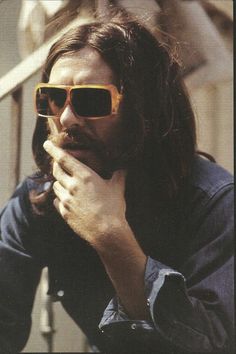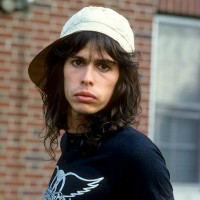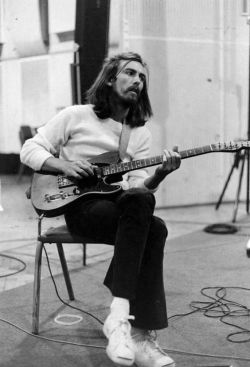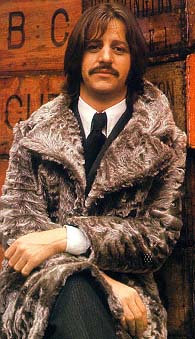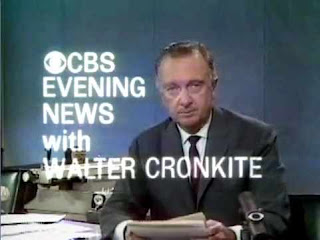The Complete Chronology
One of the Beautiful People: Alt Former Beatles Timeline
1967
Sunday, August 27 - Brian Epstein dies
Monday, August 28 - Beatles quit being the Beatles
Friday, September 29 – “I Am Walrus” completed, end of recording for YS:AAMT
Middle of October – Film work for YS:AMMT done
Friday, November 24 –
“Hello Goodbye”/“Fool on the Hill” released
Tuesday, December 26 – Paul’s dad calls John for help
Wednesday, December 27 - John visits Paul at his dad’s in Liverpool & moves in with Aunt Mimi
1968
Monday, January 22 – Paul and John return to London, Peter Brown made CEO of Apple Corps
Monday, January 29 – John, Paul, & Ringo begin ‘Early 1968 Sessions’
Sunday, February 11 – ‘Early 1968 Sessions’ completed with recording of “Hey Bulldog”
Friday, February 23 –
“Hey Bulldog”/“One After 909” released
Sunday, February 25 – “Hey Bulldog” video shown on Ed Sullivan Show
Monday, February 26 – All former Beatles go to India
Friday, March 1 –
“Isn’t It a Pity”/Isn’t It a Pity version 2” released
Saturday, March 9 – Paul returns to London
Wednesday, March 13 – Ringo returns to London
Wednesday April 3 – John and George fight
Thursday, April 4 – John returns to London
Friday, April 5 –
“Lady Madonna”/“Helter Skelter” released
Saturday, April 6 – Yoko Ono moves in with John in his flat
Monday, April 8 – John starts work on “Across the Universe” with Paul and Ringo
Saturday, April 13 – John finishes “Across the Universe”
Wednesday, April 17 – John Lennon and Cynthia Lennon divorced
Saturday, April 20 – Paul drives out to visit Julian and composes “Hey Jude” in his head
Saturday, April 27 – George returns to London
Monday, April 29 - George starts work on
Wonderwall Music
Saturday, May 4 – Paul breaks up with Francie Schwartz
Friday, May 10 –
“Don’t Pass Me By”/“Run Down Boogie” released
Monday, May 13 – Ringo begins filming scenes for
Candy
Friday, May 17 - Ringo completes filming on
Candy
Saturday, May 18 – George finished
Wonderwall Music
Monday, May 20 - Ringo sees rushes of his work in
Candy and is self critical
Tuesday, May 28 – Ringo with various friends starts work on
Hey Baby
Wednesday, May 29 -
Wonderwall released at Cannes
Monday, June 3 – George with Paul & Ringo, etc, begin work on “While My Guitar Gently Weeps”
Thursday, June 6 – George & crew work on “Not Guilty”
Saturday, June 8 – George & crew begin recording two songs with Jackie Lomax
Tuesday, June 11 – Paul with George & crew jam and record “Don’t Say You Love Me.”
Thursday, June 13 – George & crew finish up recording the five songs
Friday, June 14 -
“I Am The Walrus”/“Across the Universe” released;
Saturday, June 15 – Paul, Maggie McGivern, George, & Pattie vacation in Sardinia
Monday, June 17 – Ringo starts summer classes at Royal Academy of Dramatic Art (RADA)
Tuesday, June 18 – Paul proposes on beach to Maggie & she accepts
Wednesday, June 19 –
YS:AMMT film released
Friday, June 21 –
YS:AMMT album released
Saturday, June 22 – Paparazzi take photos of Paul & Maggie holding hands
Monday, June 24 – Tabloids print photos of Paul & Maggie
Friday, July 5 -
“While My Guitar Gently Weeps”/ “Not Guilty” released
Monday, July 8 – Paul with friends begins work on “Hey Jude” and
Where I Been From.
Saturday, July 13 – John works on
Revolution EP
Tuesday, July 16 – Yoko Ono and Anthony Cox divorced
Thursday, July 25 – John completes
Revolution EP
Friday, July 26 – Paul and friends record last over dubs for “Hey Jude”
Friday, August 2 –
“Sour Milk Sea”/“The Eagle Laughs At You” released
Tuesday, August 6 – Kyoko arrives in London to visit her mom, Yoko Ono
Thursday, August 8 – Kyoko turns 5, John plays
Revolution EP to Paul at Kyoko’s party
Friday, August 9 – Ringo finishes up summer class
Saturday, August 10 – Anthony Cox, Kyoko’s dad, disappears into a cult;
Hey Baby finished
Monday, August 11 – John enters studio with Paul, Ringo, etc for “Revolution 2”
Thursday, August 15 – John and crew begin work on
Number Nine EP
Saturday, August 31 –
Revolution EP released
Wednesday, September 4 – Yoko finds out she is pregnant
Friday, September 6 – John Lennon and Yoko One marry. John becomes John Ono Lennon.
Saturday, September 7 – John, Yoko, Kyoko, & Julian go on family honeymoon in Majorca, Spain
Sunday, September 15 - John, Yoko, Kyoko, & Julian return to London
Monday, September 16 – Julian goes home to Cynthia and Kyoko visits, John and Yoko binge on Heroin
Tuesday, September 17 – Yoko miscarries
Thursday, September 19 – John and Yoko decide to quit Heroin
Friday, September 20 –
Hey Baby released
Saturday, September 21 – John and Yoko finish withdrawal
Tuesday, September 24 – Ringo enters fulltime three year program at RADA
Friday, September 27 –
Number 9 EP released in UK;
But I Am of the Universe released in US
Monday, September 30 – John and Yoko use Heroin again
Tuesday, October 1 – Paul and friends complete
Where I Been From; John interviewed on BBC
Friday, October 4 –
“Hey Jude”/“Don’t Say You Love Me” released
Saturday, October 5 – Paul and Maggie marry.
Friday, October 11 – Paul with touring band begin surprise performances starting in London
Thursday, October 31 – Joe Cocker and the Grease Band release “With A Little Help From My Friends”
Friday, November 1 –
Wonderwall Music released.
Monday, November 3 – George and ‘friends’ start recording
I, Me, Mine EP
Friday, November 8 –
I, Me, Mine basic tracks completed
Monday, November 11 – Ringo and friends begin work on “Octopus’s Garden”/“Piggies”
Tuesday, November 19 – Last work on Ringo’s single completed
Wednesday, November 20 – George does over dubs on
I, Me, Mine; stops shaving
Saturday, November 23 – Paul has to cancel surprise performance in Liverpool when news leaks
Thursday; November 28 – “Journey to the Unknown: Matakitas Is Coming” broadcast
Friday, December 6 –
“Octopus’s Garden”/“Piggies” released
Tuesday, December 10 – Thomas Merton almost assassinated by three men
Thursday, December 12 – Joe Cocker and the Grease Band begin tour of North America
Sunday, December 15 – Paul’s last surprise performance in Edinburgh
Tuesday, December 17 –
Candy released
Friday, December 20 –
Where I Been From released
Thursday, December 26 – Paul gives free concert at Anfield Stadium in Liverpool to over 50,000
1969
Saturday, January 4 – Paul and Anfield band go into studio
Friday, January 10 –
I, Me, Mine EP released
Wednesday, January 15 - John views screening of Paul's statement and he writes "Sensitive Guy" lyrics
Thursday, January 18 - John records "Sensitive Guy" lyrics
Wednesday, January 22 - John with Paul and some of the Anfield Band record "Don't Wanna Cry"
Friday, January 31 –
“Get Back”/“Deep Inside” released
Monday, February 10 – Paul and Anfield band finish new songs in studio
Thursday, February 20 - John and Yoko slip
Friday, February 21 -
"Sensitive Guy"/"Don't Wanna Cry" released
Thursday, March 6 - John and Yoko go cold turkey
Monday, March 10 - John and Yoko finish withdrawal, Ringo starts filming
Magic Christian
Thursday, March 13 - John uses Heroin with a needle
Friday, March 14 - John attempts suicide, Yoko saves his life
Saturday, March 15 – George Martin finishes producing
Cloudsplitter
Friday, March 21 –
Cloudsplitter released
Saturday, March 22 – Paul and the Anfield Band (now their official name) begin tour in Birmingham,
Saturday, March 22 – Cloudsplitter opens for Paul and the Anfield Band
Sunday, March 23 - John visits used book store and buys book, stays up all night reading it
Monday, March 24 – John asks Peter Brown to contact the monk author
Tuesday, March 25 - George finally hears "Sensitive Guy" on the radio
Wednesday, March 26 – George writes “We’re Together”
Saturday, March 29 – John flies to Kentucky, Yoko stays in London
Saturday April 5 – Joe Cocker and the Grease Band ‘s North America tour ends in Seattle
Monday, April 7 – George with Grease Band, record in Seattle with Leon Russel
Tuesday, April 15 – George finishes recording, flies to Maui
Thursday, April 17 –
“We’re Together”/”Let Me Play It” and
We’re Together released.
Friday May 2 – George and Pattie fly from Maui to London, Ringo finishes film
Magic Christian
Saturday, May 3 – George visits Yoko at her and John’s flat
Thursday, May 8 – Delaney & Bonnie UK tour with ‘Dutch Egmond’ begins
Thursday, June 5 – Ringo finished drama classes for year.
Wednesday, June 11 -
Anfield, film and album, released.
Saturday, June 14 – Ringo and Maureen fly to Los Angeles, John goes to Nashville
Monday, June 16 – Ringo auditions for
They Shoot Horses Don’t They
Tuesday, June 17 – John and Dirty Truth begin recording
You Know It Ain’t Easy at RCA Studio A
Saturday, June 28 – Sunapee, NH:Future members of Aerosmith play on stage along with
Anfield
Tuesday, July 1 – Ringo starts filming
They Shoot Horses Don’t They
Thursday, July 3 – John “Jackie” McCartney born, crowd participation at
Anfield spreads
Thursday, July 10 – John and the Dirty Truth complete
You Know It Ain’t Easy
Saturday, July 12- John and Yoko return to London, D&B&F in Tucson
Tuesday, July 15 – McCartneys return to London
Wednesday, July 16 – Paul and the Anfield Band begin recording 7 more songs for
Believe Me
Friday, July 18 -
You Know It Ain’t Easy &
“You Know It Ain’t Easy”/“Remember” released
Sunday, July 20 – Joe calls George to join him and the Grease Band for August 17 gig, D&B&F in Houston
Monday, July 21 – Peter Brown announces Dirty Truth will have one unannounced show in America
Saturday, August 2 – George calls John to say he’s going to perform as himself
Monday, August 4 – John insists Dirty Truth’s show be cancelled
Friday, August 8 – Paul and the Anfield Band complete
Believe Me. D&B&F in Kansas City
Saturday, August 9 – The Manson family attacks the Tate house and stops when they see Ringo
Sunday, August 10 – The Manson family kills the La Biancas, John & Yoko start NYC bed-in
Tuesday, August 12 – Ringo finishes filming
They Shoot Horses Don’t They. D&B&F in Buffalo
Thursday, August 14 – The Starkey join the Harrisons in Poughkeepsie, NY
Friday, August 15 –
Believe Me released
Saturday, August 16 – Paul and Anfield perform at Sunapee and then Manchester in NH
Sunday, August 17 – Joe Cocker & The Grease Band perform at Woodstock,
Sunday, August 17 - George, Ringo, John, and Paul perform at Woodstock and together
Monday, August 18 – Paul and Anfield perform at Albany, NY
Saturday, September 20 – John says, “I want us to be the Beatles again.”
Friday, October 17 -
Harry and
“I Guess The Lord Must Be In New York City” released
Monday, November 24 - Apple announces
The Beatles to be released on Friday
Friday, November 28 -
The Beatles and "
Like No Other Lover/Cloud of Unknowing" released
Friday, November 28 - Both the album and the single debut at #1 in every English speaking nation
Friday, December 12 –
The Magic Christian released costarring Richard Starkey
Wednesday, December 24 –
They Shoot Horses Don’t They released
1970
Saturday, March 7 – Oscars nominations announced, Richard Starkey nominated for Best Supporting Actor
Tuesday, April 7 – 42nd Academy Awards, Jack Nicholson wins Best Supporting Actor
May - Merton George Lennon born
June - Leigh Starkey born
1971
Rich graduates from RADA
The Concert For Bangladesh hosted by The Beatles
"
I'm A Dreamer" by The Beatles released
1972
John and Yoko on Mike Douglas daytime talk show
George quits smoking
1973
"
Live and Let Die," theme for the James Bond film, released by Paul McCartney
1985
Beatles headline Live Aid
1987
John does MTV interview with Kurt Loder
1991
Richard Starkey co-stars in
Silence of the Lambs
1992
Sir Richard Starkey wins Best Actor Academy Award
1993
Yoko publishes her autobiography
2004
Paul does Rolling Stone interview





